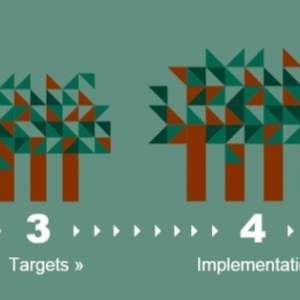
The report Deforestation-free supply chains: From commitments to action, published by CDP, highlights ways in which industry can be part of tackling the deforestation crisis while still securing and maintaining access to their sources of profit.
CDP, an international NGO that drives sustainable economies, now holds six years of corporate forest-risk data. It asks companies to disclose this information on behalf of 240 investors who together represent US$15 trillion in assets.
The major driver of global deforestation comes from our demand for four critical agricultural commodities – beef, palm oil, paper/pulp and soy. These commodities feature in the supply chains of countless companies and since the demand for these commodities grows, we can expect global agricultural cropland to expand by 42% by 20505, leading to increasing business and environmental risk.
The report points out that with 13 million hectares of forest lost annually in the past decade, companies have an imperative to act now to help break the link between commodities, deforestation and climate change if we are to stay within the goal of limiting global warming to no more than 2°C.
The report looks at the disclosures from 152 companies from around the world, including Asia Pulp & Paper, Cargill and Unilever, representing a market capitalization of over US$3 trillion, who responded to the investor call for transparency and accountability on deforestation and forest-risk commodities.
- Companies are inconsistent in recognizing risks and taking action. Across both commodities and supply chains, businesses are inconsistent in assessing and acting on risks and opportunities. Companies further along the supply chain are for example less likely to recognize operational risks to their business, with only 35% of manufacturers identifying operational risks associated with soy when 83% of producers see that same risk.
- Companies see opportunities in tackling deforestation. While many companies have yet to realize a comprehensive strategy for tackling deforestation, CDP's forest data shows nearly 90% of businesses identify opportunities with the sustainable sourcing of at least one forest-risk commodity. British Airways for example reports that increasing consumer awareness of environmental issues means acting to minimize deforestation could offer it competitive advantage.
- Businesses failing to act on deforestation risk lagging behind their competitors. The 30% increase in the number of investor signatories demanding corporate disclosure through CDP's forests program shows that investors are increasingly paying heed to these issues. Companies that do not disclose to investors and other stakeholders through CDP could have vulnerabilities in their supply chains and are at risk of lagging behind their competitors.
Citation
Deforestation-free supply chains: From commitments to action, CDP Global Forests Report 2014
Read the full report here.
You can read more about deforestation on our website here.
Note that the CDP publishes a regular series of reports which set out current industry (including food industry) actions and reporting on, among other things climate change, and water .







Post a new comment »